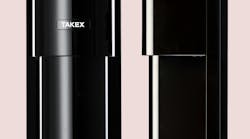The police and fire service waste thousands of man hours a year responding to false alarms. Crime Reporter Alan McEwen discovers that it's largely companies and householders that are to blame.
IT'S 3am and the alarm in a warehouse goes off. It sends police racing to the scene only to discover the premises seem secure. The keyholder is summoned and an examination of the alarm reveals it has been wrongly set. While there is relief all round, two officers have been pulled from frontline duties to attend. For the emergency services in the Lothians - both police and fire - it is an all too familiar story.
The police waste hundreds of hours responding to up to 15,000 false burglar alarms in Edinburgh every year. Over 90 per cent of automatic fire alarm call-outs the fire brigade attends turn out to be false alarms.
The emergency services face attending dozens of homes and businesses every day where alarms have been set off accidentally or due to malfunction. Many alarms can be triggered by the tiniest movements - such as a spider crawling across a sensor - while other systems are simply outdated or badly maintained.
During a 24-hour period last month, police dealt with 41 false alarms across the Capital, with only three sounding because of a real intruder.
Police and security experts today advised owners to keep their systems up to date and well-maintained to prevent officers being called away from other duties for nothing.
Some premises have seen their response status downgraded from "immediate" because of so many false alarms. Police chiefs said they were compelled to apply a response criteria allowing them to quickly divert resources to those alarms which may be genuine while still attending others. But officers said they were careful not to be caught out and miss the opportunity to catch a thief in the act.
Superintendent Ivor Marshall, deputy divisional commander for the city, said the force was working to cut down on the number of false call-outs it dealt with.
He said: "We apply a certain standard that has to be reached before we immediately respond. For instance, if an intruder alarm at a hairdresser's triggers at 9am when staff will be arriving for work, our level of concern is not the same as when that alarm goes off at 3am.
"In other cases, we might also get a call at the same time as an alarm from a member of the public who heard breaking glass from the premises, or someone acting suspiciously. But if a business premises has a lot of false alarms then we have the facility to write to them and inform them that they have been downgraded from an immediate response. We will still respond but only when there are not other demands on our time."
Between 8am on Saturday, August 9, and 8am the following morning, 38 of the 41 false alarms were due to a system failure while two were because of the weather and one because of a mistake by the keyholder.
Most modern alarms are connected to a response centre where an operator contacts police as soon as one of its customer's alarms is triggered. But despite the technology the system is far from foolproof.
Fire chiefs say almost half of all call-outs are unnecessary. Some are malicious, some made in good faith, but most - around 7500 a year - are triggered wrongly by businesses and organisations whose alarms are wired directly into Lothian and Borders Fire and Rescue Service's system.
When the Fire (Scotland) Bill was being debated in the Scottish Parliament, four years ago, the Chief Fire Officers' Association Scotland argued that the worst offenders should be charged up to GBP 50,000 a year to account for false alarms. But at the time city business leader reacted angrily to the proposals, expressing concern a charging regime would become "punitive", and a legal challenge to a similar charging scheme in England has led fire chiefs north of the Border not to pursue it.
Lothian and Borders' fire service attends around 8000 calls a year from businesses wired up to its system. However, 98 per cent of these are false and false alarms still cost hundreds of thousands of pounds in wasted journeys every year. The service says that despite there being no legislation allowing it to impose fines there are a number of options open to it when buildings known to be affected regularly by false alarms came up on the system.
Those choices, set nationally, range from sending a full brigade out on each occasion, regardless of how often the alarm goes off, to not responding at all unless a separate 999 call is made by the premises' supervisor.
A spokesman said: "At Lothian and Borders if an alarm goes off somewhere that we know experienced a false alarm recently we send one appliance out with its blue lights on to check it out. In other areas it is done differently, but that is how we do it."
He added that ignoring an alarm unless additional notification comes through "is an option, but we've never done it".
The spokesman added: "We also work closely with organisations, like universities, to see how to solve a problem if it is happening regularly."
Alarms going off for no reason continue to perplex the police. Supt Marshall admitted that the force is caught in a dilemma but cannot afford to ignore an alarm. "We are a response service and we will not give up any opportunity that might allow us to catch a housebreaker or prevent a crime. It's a balancing act in providing the appropriate level of response."
Matt Morrell, director of city-based security firm, Safe Simple Secure, has worked in the industry for 15 years.
He said: "Customer error is common for setting off alarms, as are insects which can trigger infra-red devices. And we advise people not to install alarms above radiators as heat can trigger them too.
"But the new systems which connect to monitoring centres are much better. In the past, police would have to deal with far more faulty alarm calls."
"We advise people to keep their systems up-to-date and well-maintained."


